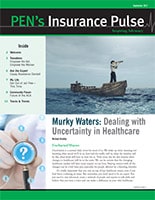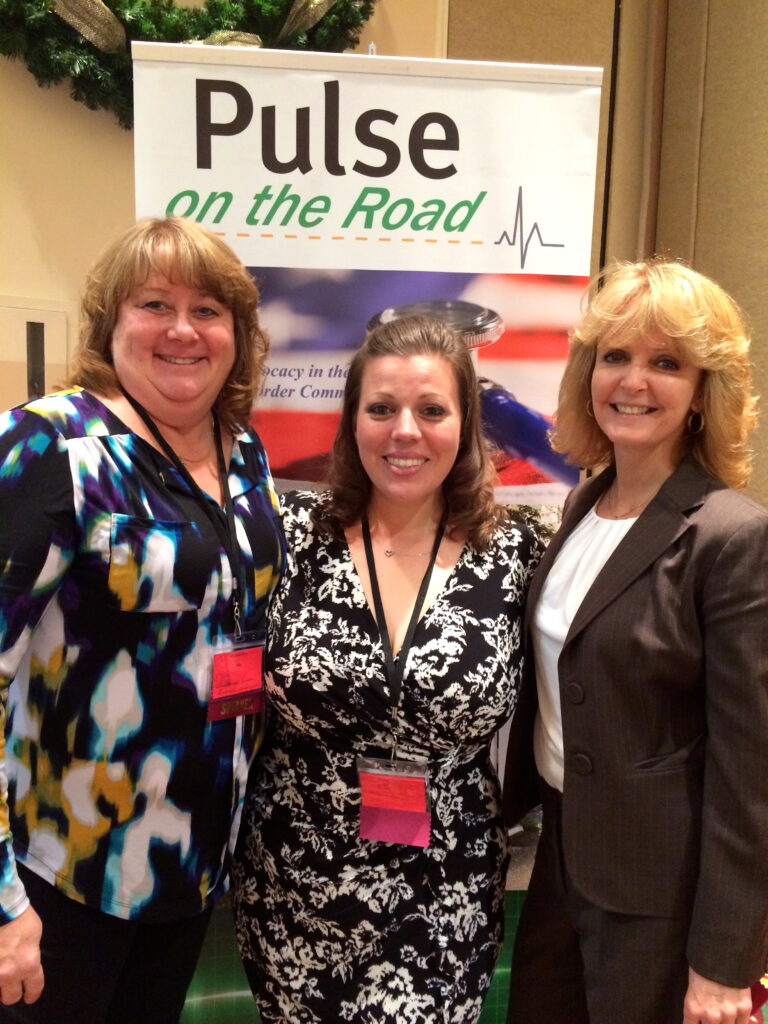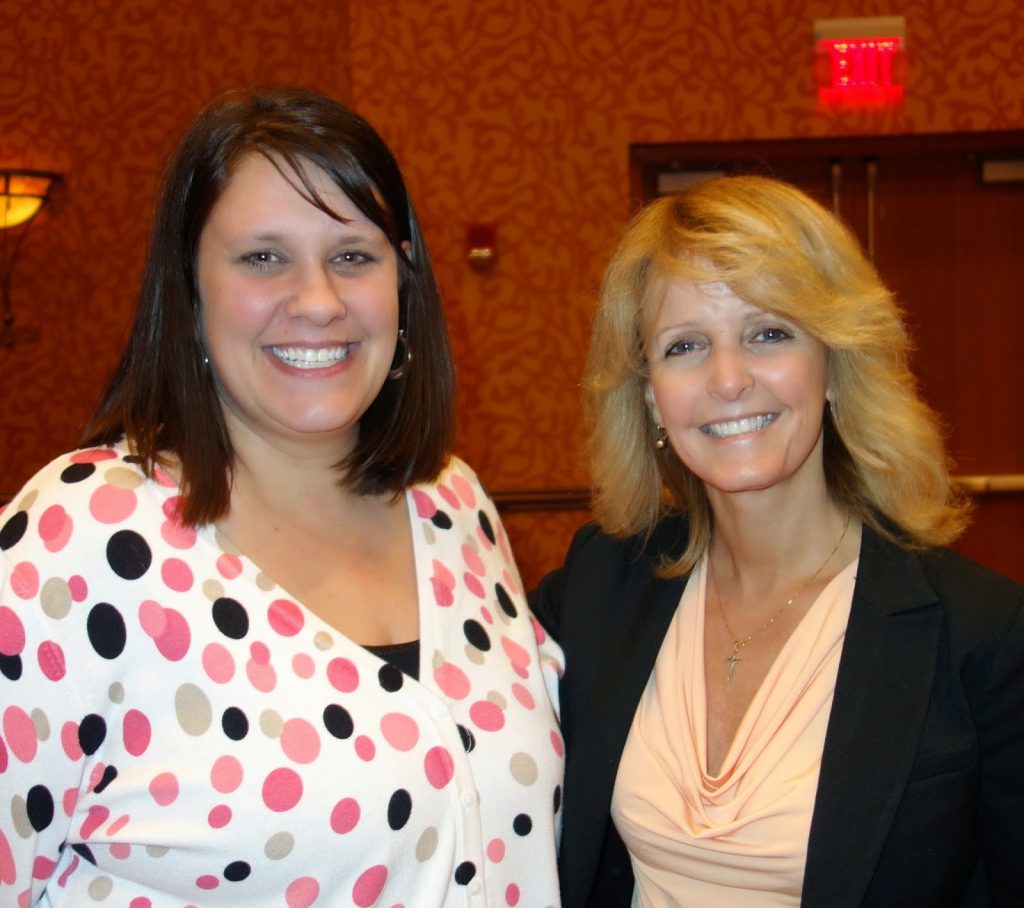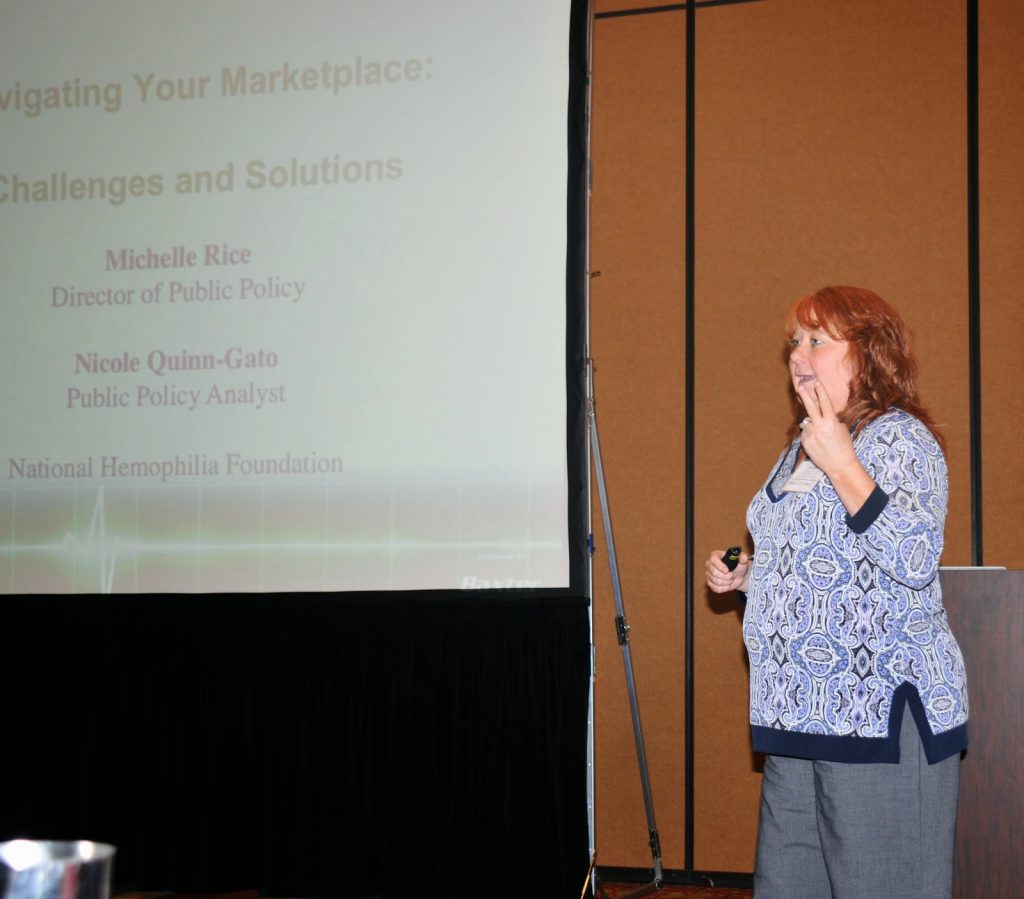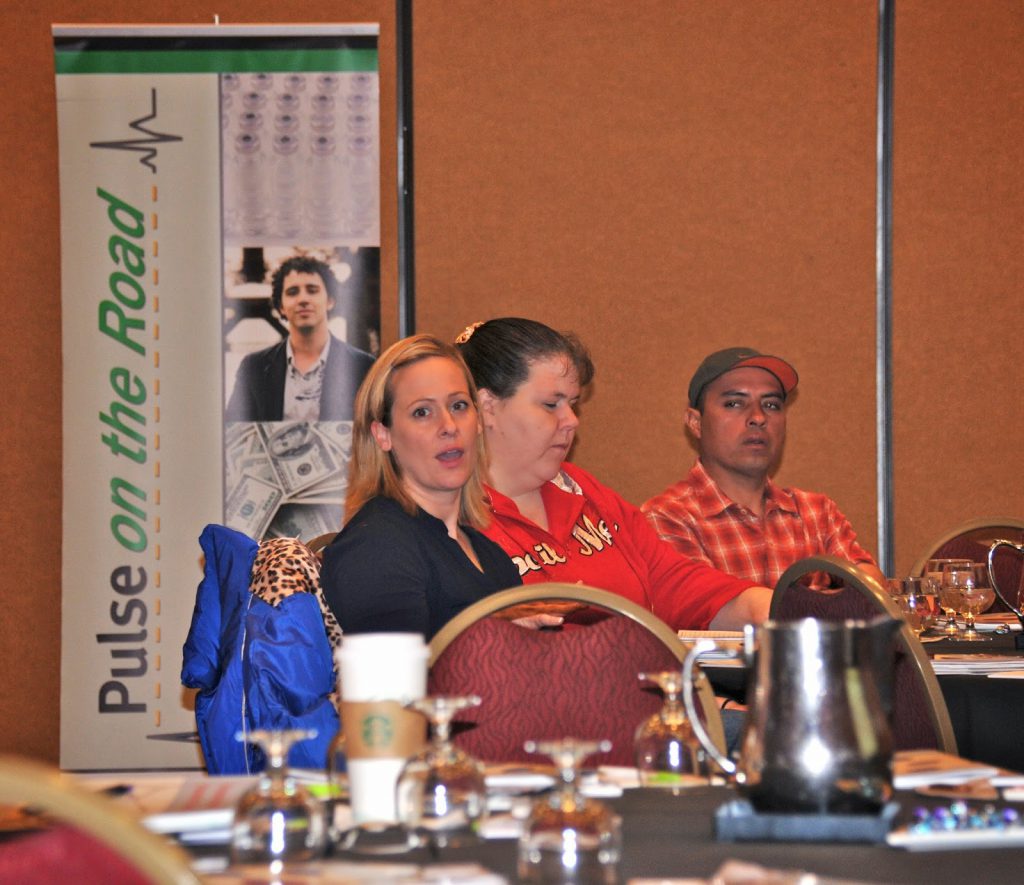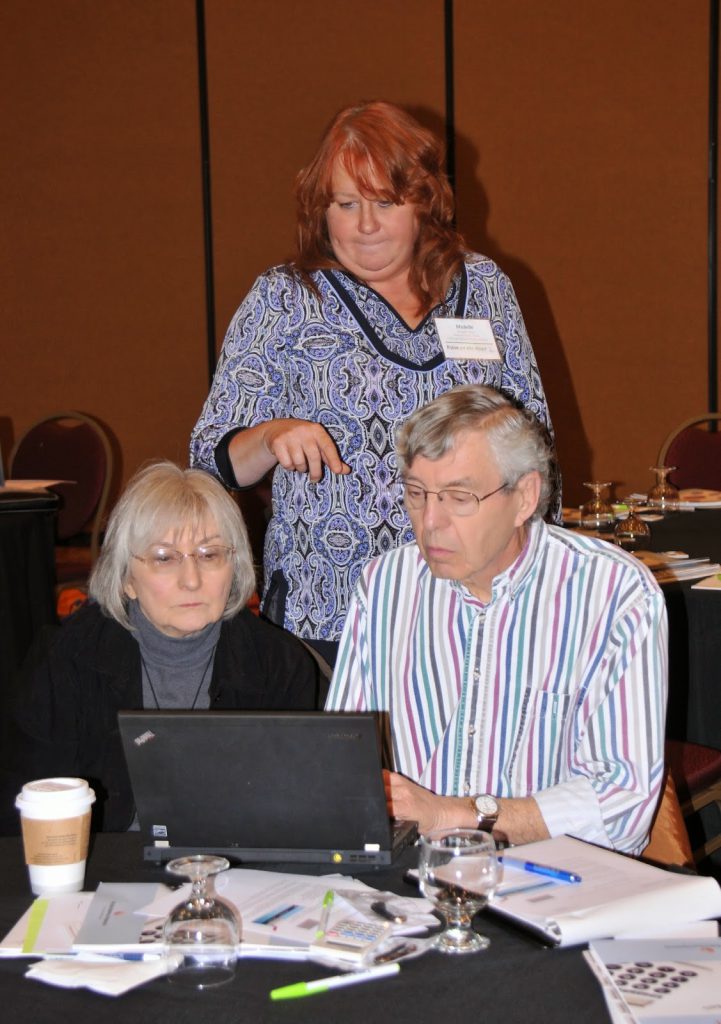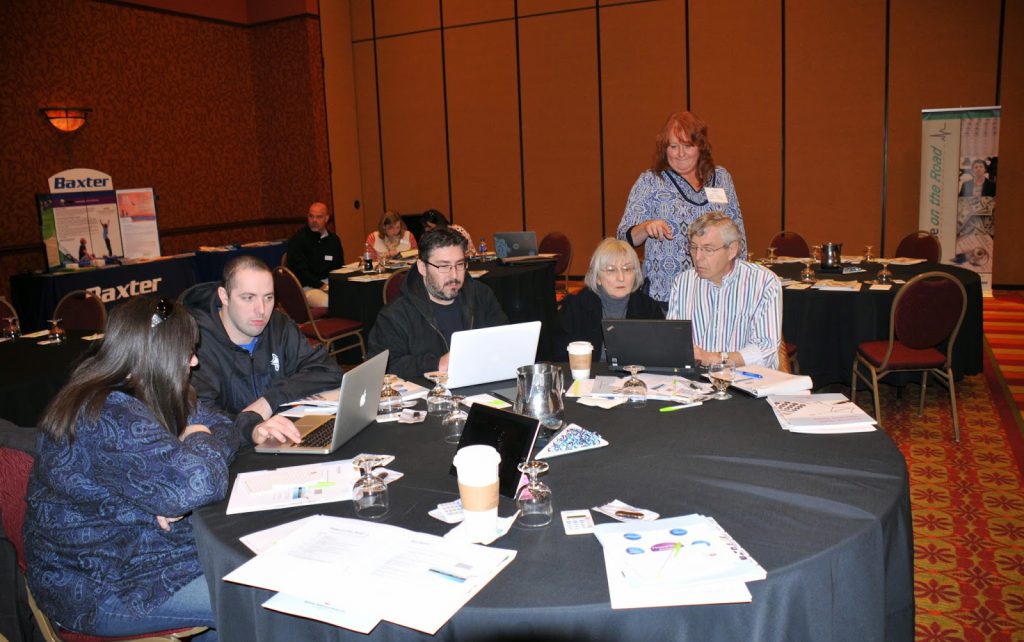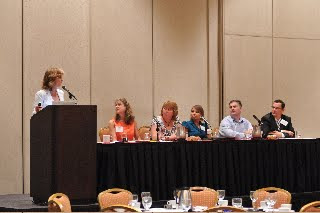Laurie Kelley
June 28, 2011
Insurance is still the hottest subject in bleeding disorders, and this past weekend in San Antonio really proved it. We had a great turn out for “Pulse on the Road,” our unique symposium, sponsored by Baxter Healthcare Corporation, that is completely devoted to educating patients about insurance reform. As guests of the Texas Central Hemophilia Association and Lone Star Chapter of NHF, we presented a three-hour symposium on Sunday, June 26, from 7 am to 10 am, to an audience of over 200 patients and their families.
The chapters did an excellent job of attracting patients and families to attend. With hundreds of family members and a fair amount of industry representatives, this was a stellar meeting. I loved seeing the children with hemophilia scampering about, or holding relay races in the hallways as part of the supervised kids’ programs. No joint problems anywhere!
While a nutritious, hot breakfast was served, I started the session Sunday morning with an overview of hemophilia’s history and how our unique history has been placed high on the radar screen of insurance companies and state governments. My talk was followed by Elizabeth Stoltz of Baxter Healthcare, who gave an Insurance 101 session; her talk covered common terms that all families will need to know to navigate healthcare reform. Then, Michelle Rice of NHF presented the results of a patient-focused survey from last fall, which tested to see how much bleeding disorder patients knew about their insurance and insurance reform. Results were encouraging, as high numbers knew that lifetime maximums were being eliminated and that dependents would be able to stay on their parents’ insurance until age 26.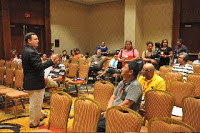
Finally Jim Romano of Patient Services, Incorporated (PSI) gave the keynote about healthcare reform. Breaking down the many changes into digestible amounts, Jim covered how the new healthcare reform will help us, and what we need to monitor to ensure we continue to have access to the care we need.
To spice things up and keep our audience sharp at such an early hour, I asked the audience after each presenter a question, and whoever got the right answer won cash! The message: we are trying to educate to keep the cash in your wallets. If you don’t know much about your own insurance policy, you may overpay. If you don’t know how insurance reform will impact you, you may lose money. In these economic times, we want every family to preserve their hard-earned dollars. The “competition” added some fun to the topic of insurance and we had some sharp people in the audience!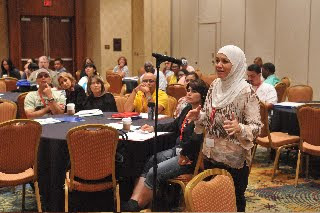
Following the speakers we had three breakout sessions on Medicaid, Out of Pocket Costs and Advocacy. Everyone agreed that 45 minutes for break out was not enough. These interactive and informal gatherings proved the highlight of the meeting. Patients were able to ask questions about their personal situation with experts in their field. Jim Passamano, of Sufian & Passamano LLP, a lawyer specializing in chronic disorder and insurance, helped explain Medicaid changes to many families. Shannon Brown, a social worker from Texas, spelled out certain out of pocket costs that patients will need to monitor closely. And Michelle Rice of NHF presented a new personal tool to help families get a handle on comparing insurance plans.
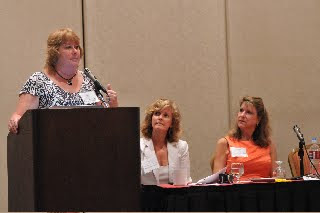
Simultaneous translation into Spanish helped the many Spanish-speaking families understand how healthcare reform may impact them.
Patients truly appreciated the three-hour program and the chance to speak to insurance experts in bleeding disorders. “I would like to have attended all the [break out] sessions and not just one!” commented one attendee. “I’m very pleased at how much I learned and all the wonderful people I met!” exclaimed another. When asked if they learned something new, every hand in the room was raised!
Thanks to Luis and Shannon, executive directors of their chapters, and coordinators of the event, for inviting us, and to Baxter Healthcare Corporation for their sponsorship.
Visit our website (“Events”) to see where we take Pulse on the Road next!
Visit our website to download your complimentary copy of Pulse, our newsletter devoted to insurance reform for the bleeding disorder community.
Interesting Book I Just Read
Altitude Illness: Prevention & Treatment
Stephen-Bezruchka, MD
This is a small book, written to be taken while trekking on mid- to high-altitude mountains. I read most of it on one plane ride. It’s chock full of good information, and goes into great (and scary) detail of what can happen to you if you are not careful on the mountains. It’s very dry, terse, to the point, and may make you think twice about attempting the big ones. Too late for me! I am going to tackle Mt. Kilimanjaro in August. The strange thing about altitude sickness is you just never know who it will strike. Marathoners and top athletes, like Martina Navratilova, can get it, and 12 year olds with limited climbing experience may avoid it. You never know till you are there. Two stars.
